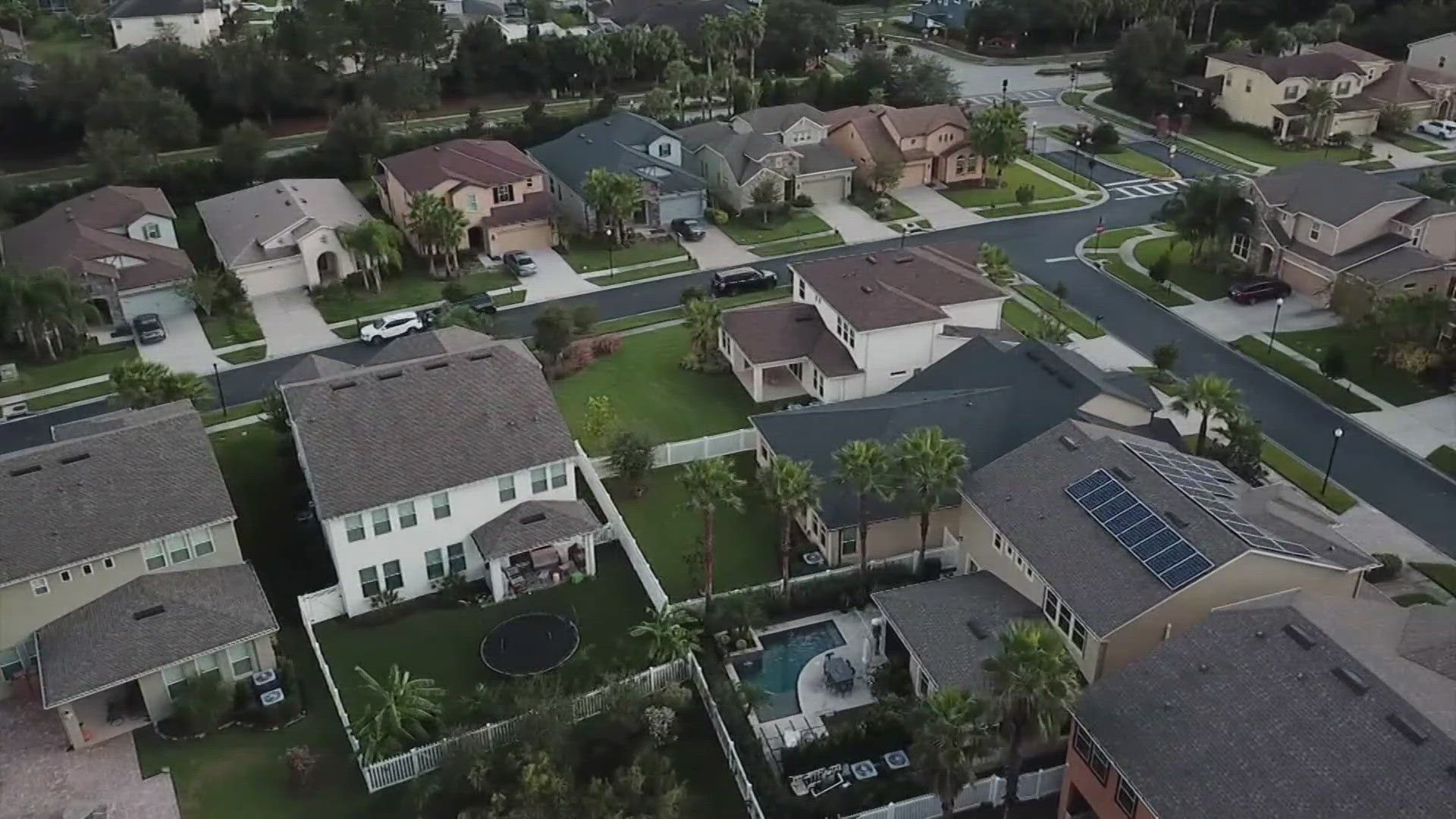COLORADO, USA — A statewide hotline that takes questions from people facing eviction and foreclosure said its call volume doubled since September.
Colorado Housing Connects, a free housing helpline run by the non-profit Brothers Redevelopment, connects Coloradans to housing counseling and legal services.
Patrick Noonan, program manager for Colorado Housing Connects, told 9NEWS the hotline received an average of 563 inquiries per week in September. The hotline has received an average of 1,166 inquiries per week so far in January.
Noonan took questions from 9NEWS about the increased demand and how the 18 staff members at Colorado Housing Connects help renters, homeowners and landlords alike.
Editor's note: Responses have been updated for context and clarity.
9NEWS: What kinds of questions are you getting from Coloradans who call Colorado Housing Connects?
Noonan: We get a lot of questions from people who are worried about their ability to pay their rent. They’re not quite sure what their options...might be. We get calls from homeowners who are worried about paying their mortgage, landlords trying to work with tenants to keep them in their housing.
More and more, we’re hearing from people who say, ‘Hey, my landlord is telling me I have to move. They’re not renewing my lease and I need to find a new place to live.'
How do your navigators help people with housing concerns?
Noonan: We’ll help walk them through the process. If they need some legal assistance, we’ll refer them over to one of our legal partners. If they need help with paying the rent, we’ll refer them over to resources that might be able to help with that, or to a housing counselor if they need help making sure they’re on the right track with their mortgage.
When does the federal moratorium on evictions expire, and how will that affect Coloradans?
Noonan: The federal eviction moratorium is set to expire Jan. 31. With the new presidential administration coming in, they have hinted that they’d like to extend it into September 2021.
That would be really big, and it would provide a lot of protections for renters. There are some weaknesses with the federal eviction moratorium, and we will still see a lot of families looking for a new place to live and forced out of the housing that they do currently have.
How was the statewide eviction moratorium, which expired at the end of December, different from the federal moratorium?
Noonan: The statewide moratorium meant that people could not be evicted for rent issues, lease issues, or that they could not be evicted because their lease was not renewed. The federal moratorium really only protects people when they can’t pay their rent, but at the same time, a tenant could still move through the eviction process. It only slows things down at the very end of the process when the sheriff comes knocking on somebody’s door.
What is your biggest concern and advice for people who are behind on rent?
Noonan: We’re approaching a year into the pandemic, and a lot of leases have already expired or will expire, and landlords do not have to renew somebody’s lease, and so we’ll see a lot of families forced to move because they no longer have a lease.
It’s important for tenants to know that they have to do everything they can to pay the rent, and they have to communicate and work with their landlord in order to protect themselves.
Colorado Housing Connects can be reached at 844-926-6632 or online at coloradohousingconnects.org.
SUGGESTED VIDEOS: Colorado Guide



